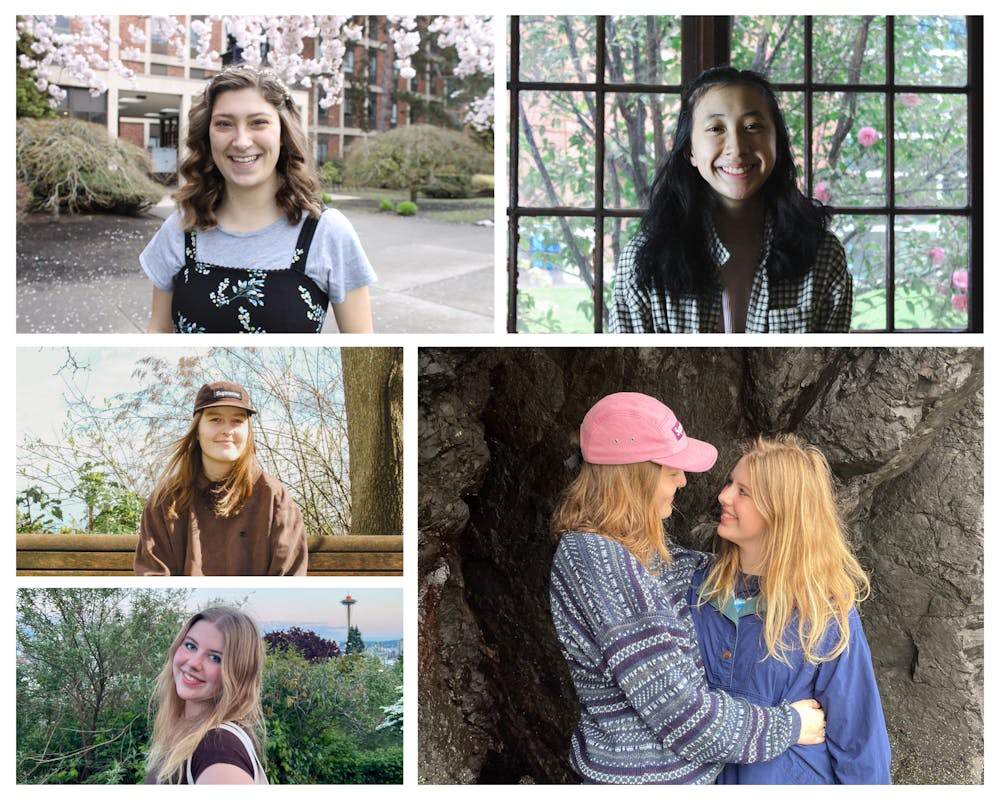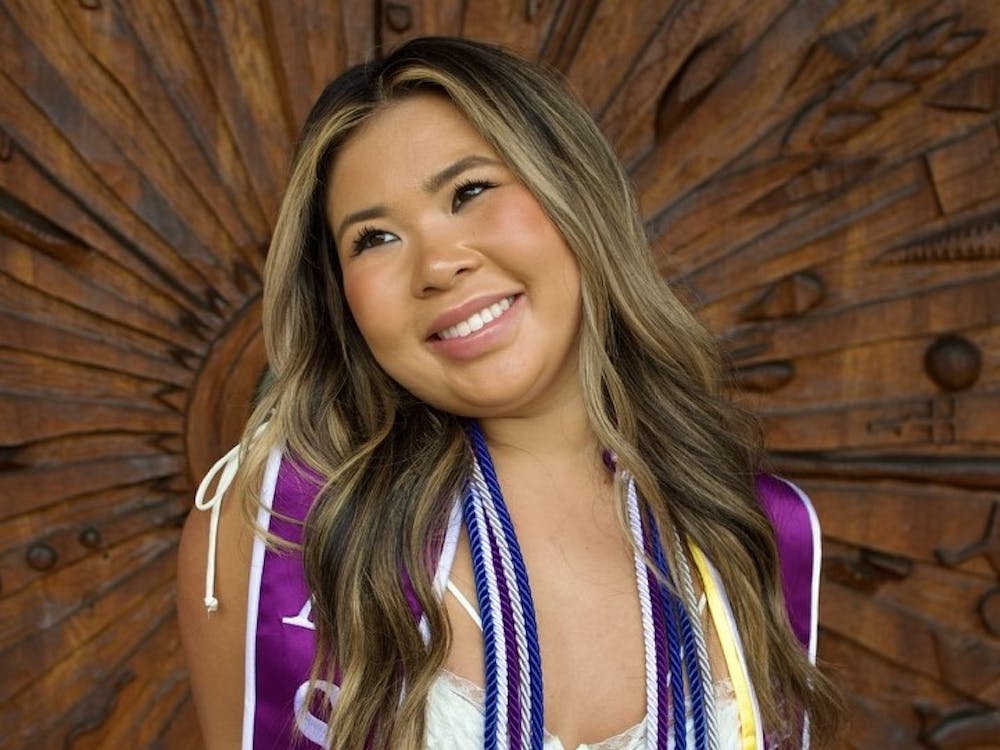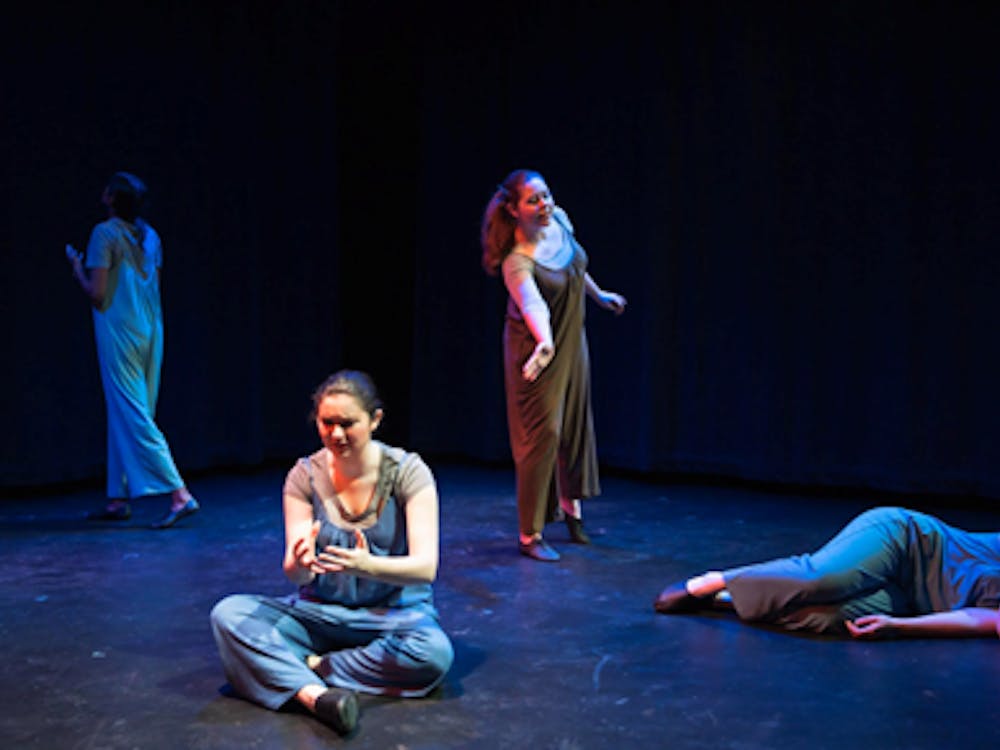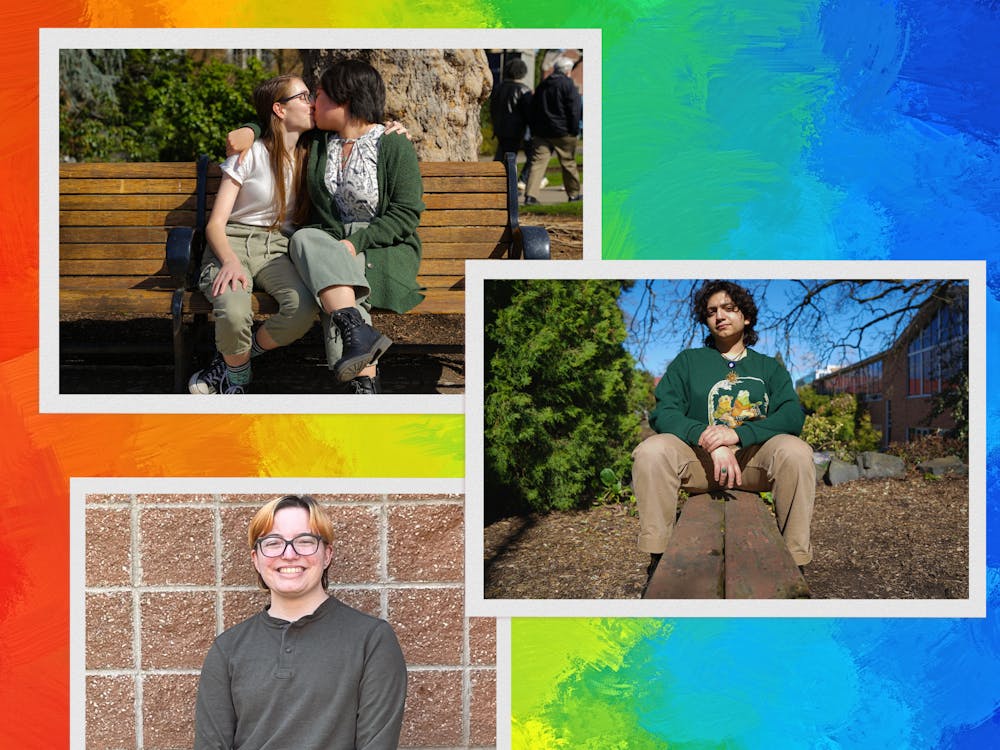Growing up, I thought that something was wrong with me. I didn’t understand why social situations were so hard for me. Why I had such a difficult time filtering myself. Why I would become so invested in something that it felt like my entire world revolved around it. Why change was so hard. Then in my first semester at UP, I learned why: I’m autistic.
April is Autism Acceptance Month. It has also been called Autism Awareness Month, but this label has been rejected by many autistic activists because it treats us as a puzzle to be solved. We don’t want people to just be aware of us, we want them to accept us and work towards creating a world that is more supportive of neurodivergent people.
Before I learned that I was autistic, I thought of autism as something to be ashamed of, something to mask for the sake of other people’s comfort. I am currently working on unlearning my internalized ableism and I still have a long way to go, but I now think of autism very differently.
I’ve learned about the importance of our language surrounding autism. Many autistic people, myself included, prefer to use identity-first language — autistic person — over person-first language — person with autism — because our autism is a key factor in what makes us who we are. My autism is something I take immense pride in.
This April, I’ve taken some time to reflect on my experiences as an autistic person, and I’ve noticed that autism is not frequently discussed at UP, at least not in my experience. As of now, there aren't many student-run organizations or club that provide a space for students with disabilities, besides the Diabetes Link club.
How does UP support autistic students, and how can we work to make this community more accepting of neurodiversity?
Students with disabilities are able to get accommodations through Accessible Education Services (AES). According to Susan Ayers, interim manager of AES services, they create accommodation plans that are specific to the needs of individual students.
“Our whole mission is to make this so uniquely personal to each student,” Ayers said.
The Disability Affinity Group is starting conversations about disability and is advocating for the rights of UP staff, faculty and students with disabilities. Sarah Nuxoll, administrative assistant in the Clark Library and coordinator of the Disability Affinity Group, aims to provide a space for disabled community members to talk about their experiences and reclaim their identities.
“My highest priority is just helping people feel accepted to help normalize disability,” Nuxoll said. “… to bring forth that counter narrative that disability isn't necessarily something wrong or a defect. It can also be an identity. It can be a source of pride and learning.”
Nuxoll recommends that neurodivergent students who are seeking accommodations contact the Research Desk in the Clark Library to find out how other universities have accommodated neurodivergent students.
But how do autistic students feel about UP’s attitudes toward neurodiversity? Do they feel supported? The experiences of other autistic students are going to be very different from my own. No autistic person is alike.
With this in mind, I spoke with four autistic and neurodivergent students about their experiences at UP and their suggestions for improvement. Here is what they have to say:
Andie Do (she/they)
As an Asian-American and autistic student, junior Andie Do has noticed that certain stereotypes are prevalent surrounding Asian Americans with autism. Asian-American children are frequently underdiagnosed with neurodiversities due to these overlapping stereotypes.
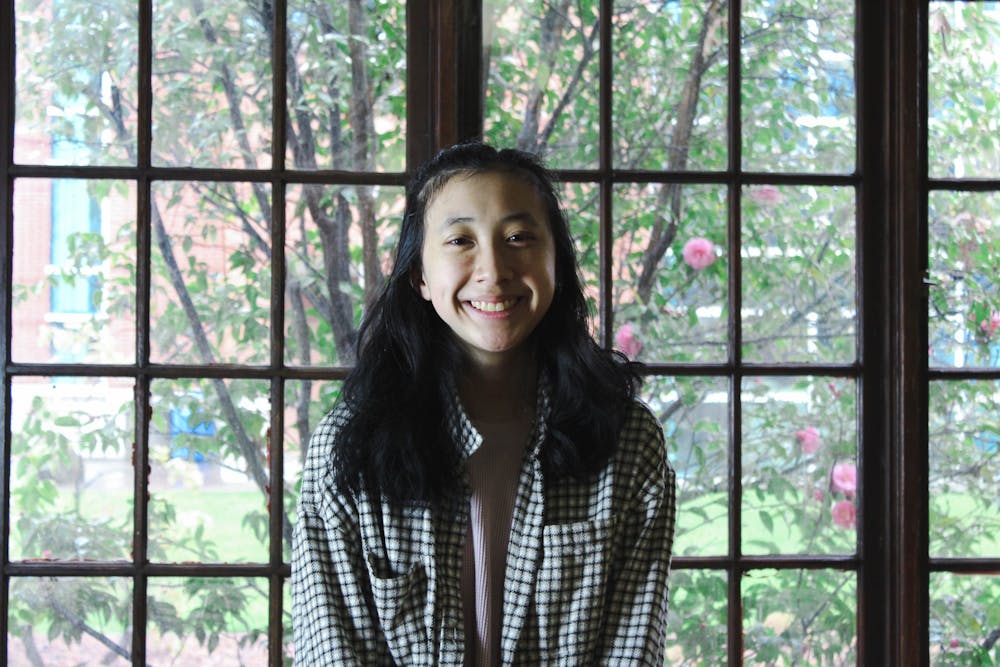
“People don't understand that autism and race can be separate,” Do said. “There's a stereotype against Asian-Americans that we’re smart and good in math and nerdy, and some of those traits overlap with autistic people.”
Do has experienced feeling isolated in groups due to difficulty understanding social cues and finds it helpful when her peers help explain them to her. At UP, Do is making more connections with people who have shared identities.
To decrease the stigma and break down the stereotypes that surround autism and prevent autistic people from expressing themselves, she believes that more people should know about Autism Acceptance Month.
“It's not one of the identities that I really express because autism is very stigmatized,” Do said.
This includes educating people on the harmful implications of frequently used language about autistic people, including classifying us as high-functioning versus low-functioning. She wishes that AES had more employees trained in disabilities and student advisors who grant accommodations that are more specific to autism.
“People don't really understand the spectrum,” Do said. “And I think honestly, maybe I'm biased because I'm a nursing student, coming at it from a medical perspective could really help because those are just the facts.”
Ellie Chapman (she/her) and Rigby Wolff (they/them)

Sophomores Ellie Chapman and Rigby Wolff immediately clicked when they started dating in January 2022. One year later, they learned that they are both autistic and were experiencing autistic burnout from constant masking.
“Constantly being with people was wearing me to my core,” Chapman said.
“I felt like I just couldn't do anything,” Wolff said. “It was very hard to identify, which actually has to do with me being autistic.”
Chapman and Wolff also both have ADHD and have experienced difficulties acquiring accommodations for ADHD and autism through AES.
Chapman observed a lack of understanding regarding symptoms of neurodiversities in AES, which she found to be discouraging. Wolff felt that AES did not offer the accommodations they needed and had to do their own research on accommodations at other universities.
Wolff emphasizes the importance of education about autism and expresses the need for more kindness and acceptance of autistic people. They enjoy sharing helpful resources on autism with others.
“Just compassion and listening to us about what we need from them and when,” Wolff said. “And believing us when we explain why we can and can't do certain things and why our brains work the way they do.”
Both Wolff and Chapman are very public about their autistic experiences and love to express their autistic pride. In search of an autistic community, Chapman recently joined the Women and Non-Binary Friendship Group for Those on the Autism Spectrum through Autism Society Oregon.
“I am not me without my autism,” Chapman said. “I think that just showing up with that attitude helps to kind of bring people along.”
Chapman finds joy in engaging with her special interests. She sees the beauty in being able to love something so deeply that you become an expert in it, even if others don’t understand that love.
Since learning they were both autistic, Chapman and Wolff have felt closer than ever. Getting to unmask around each other has been a relief for both of them.
“I could be my weirdest, my most free self,” Chapman said in reference to her connection with Wolff.
“I'm really happy we are both autistic,” Wolff said. “I wouldn't change it, even if I could.”
Sophia Litterski (she/her)
Senior Sophia Litterski was born with a rare congenital heart defect and had two open heart surgeries by the time she was two years old. These procedures caused her to develop learning delays, especially regarding reading comprehension. With an Individualized Education Plan (IEP) and support from faculty, Litterski has been able to do well in school.
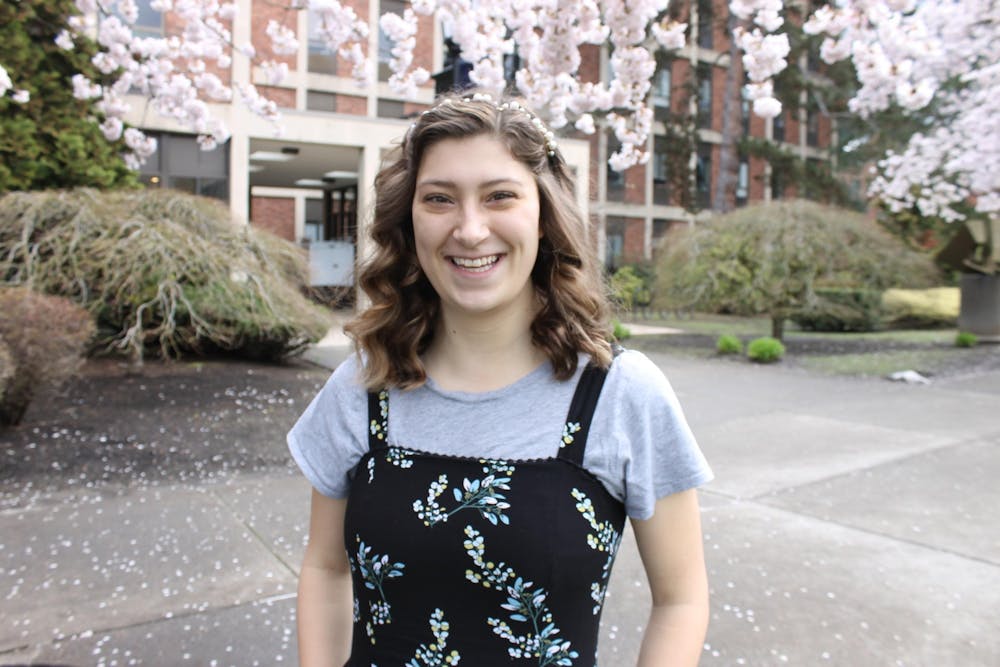
Litterski didn’t think she would be able to go college or do as well as she has. She has learned to be patient and surround herself with others who are accepting of her.
Being neurodivergent has still led Litterski to feel socially isolated from her peers. She thinks that the UP community would benefit from having a Health and Counseling Center support group or student-run club for neurodivergent students to connect with each other.
“I think that UP does want to push you academically, which is great,” Litterski said. “However, not all students are able to do that, and I think that offering not only academic support, but emotional support goes a long way.”
As an education major, Litterski works with autistic and neurodivergent students. She and other educators are working to change attitudes towards neurodivergent students in the classroom, focusing on teaching the whole child. One of the biggest steps Litterski says we can take is educating ourselves and others and dispelling stereotypes about autism and neurodiversity.
“I think that no matter what, there are going to be people with autism,” Litterski said. “And you can't change that. However, you can change the narrative, and I think that being more accepting and educating yourself and others is a really big step for inclusion.”
Sydney Gannon is a reporter for The Beacon. They can be reached at gannon24@up.edu.



